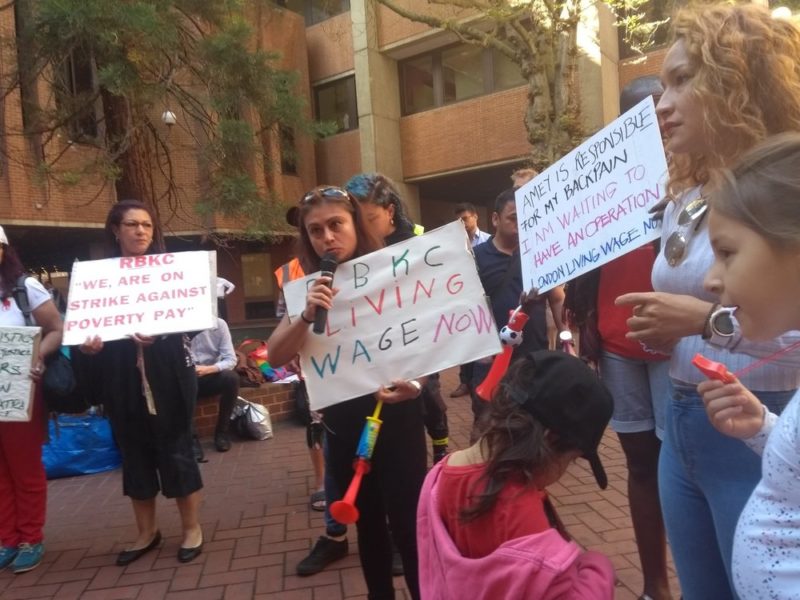Search

In 2018, cleaners for one of the richest councils in the country united to demand the London Living Wage, utilising strike action and other direct actions to pressure council leaders into a renegotiation of their outsourcing contracts.
Cleaners working for Kensington and Chelsea council, principally at the town hall, were employed by Amey via a £150m 10-year “Tri-borough” services contract. Amey paid them the then minimum wage of £7.83 per hour, and provided no sick pay beyond the statutory minimum, which paid nothing for the first three days of absence, and only a heavily reduced wage thereafter.
In May 2018 a group of cleaners represented by UVW demanded the then London Living Wage (LLW) of £10.20 per hour, and in August coordinated a joint strike with cleaners at the Ministry of Justice, supported by the local MP, Emma Dent-Coad. On the first of three planned strike days, RBKC issued two mixed messages within a few hours, the first apparently committing to bringing the cleaners in-house, and the second merely promising a review of Amey’s contract. The striking cleaners and their supporters burst into a council meeting later that afternoon, securing an agreement from council members to negotiate with cleaners on the picket line the next morning.
A statement by the council’s chief executive Barry Quirk the following day confirmed that “all options” were being considered in order to deliver the cleaners’ wage demands, including ending Amey’s contract and bringing the cleaners in-house. In September, the council fully committed to paying the LLW as of January 2019, with council leader Elizabeth Campbell further promising to try and secure backdated payment of the LLW!

OUR WINS
London Living Wage
The London Living Wage and backdated several months.